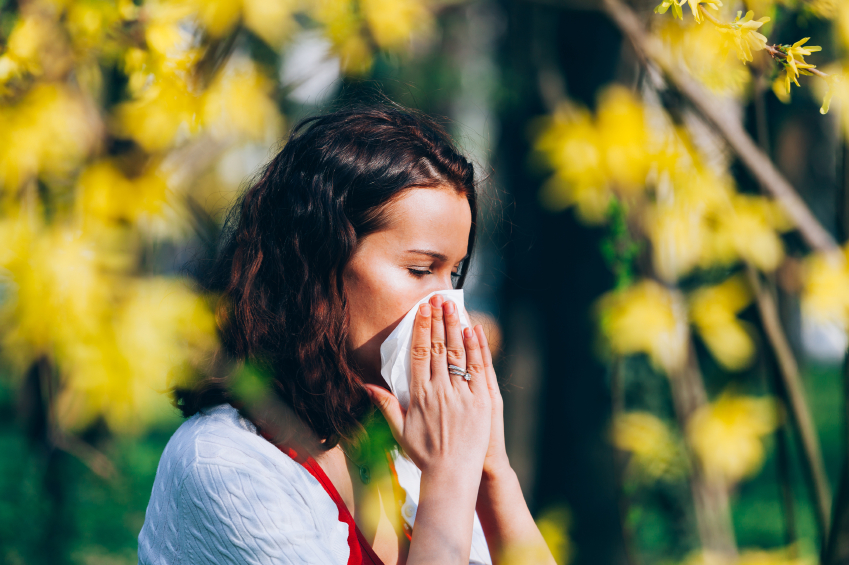Do you think it’s too soon to talk about seasonal allergies?
Think again.
A mild winter is the culprit, according to Dr. Duane Keitel of Allergy Partners of Greater Cincinnati and Northern Kentucky. A mild winter can bring about earlier pollination of trees and plants. If you suffer from seasonal allergies, here are five facts that might help you cope in the coming weeks and allergy seasons.
- New spray: Nasacort, Flonase, and Rhinocort nasal sprays are available over the counter. From the makers of the antihistamine tablet Zyrtec, Rhinocort offers 24-hour relief of sneezing, nasal congestion, and itchy and runny nose, in an alcohol-free, scent-free, non-drowsy spray. Nasacort now offers a spray for children.
- Plan before you spray: Keitel cautions that nasal sprays must be used daily. You won’t get the most relief possible “until you’ve been using them consistently for 10 to 14 days,” he said. To treat a wider spectrum of symptoms, Keitel said the sprays can combine with over-the-counter antihistamine tablets like Allegra, Claritin or Zyrtec, and allergy eye drops.
- Immunotherapy on the rise: With immunotherapy, patients are given derivatives of an allergen “to diminish the body’s allergic response and provide long-lasting tolerance,” Keitel said. Allergy specialists can administer high-dose immunotherapy shots that are very effective, he said, as well as oral tablet versions for the spring grass-pollen allergy season.
- More help on the way? “Tablets for other allergens are in development,” Keitel said, “as are methods to provide immunotherapy via a patch applied to intact skin and injections that require less frequent administration.”
- Nasty outside? Stay inside: “Avoidance still is the first step in reducing allergy symptoms,” Keitel said. He advises keeping windows closed, no matter how tempting it is to open them when the weather gets nice. Use air conditioning if needed and air filters to keep allergens out. It’s best to avoid prolonged outdoor exposure. If you need to be outside to do chores such as mowing the lawn, wear a mask. Change clothes in your garage to keep pollen particles out, and shower thoroughly. And avoid the peak pollen periods, 5 a.m. to 10 a.m. Search pollen counts for our region before heading out.

